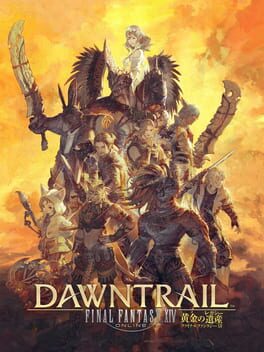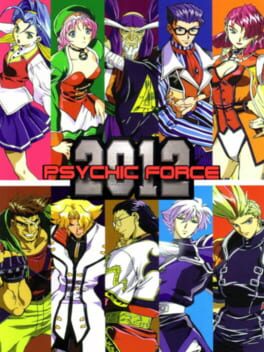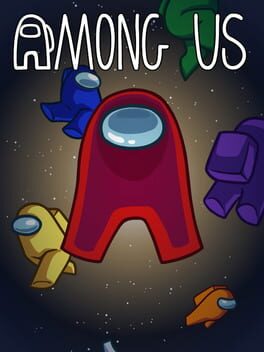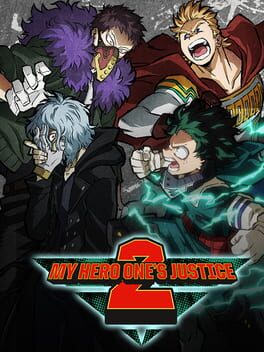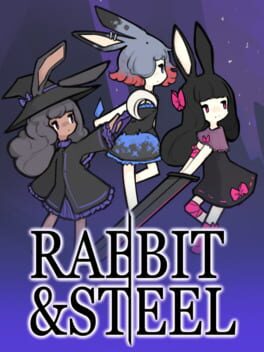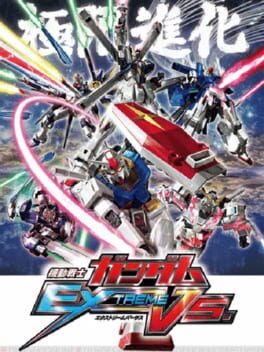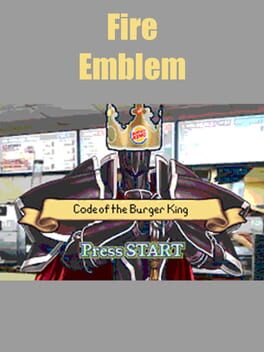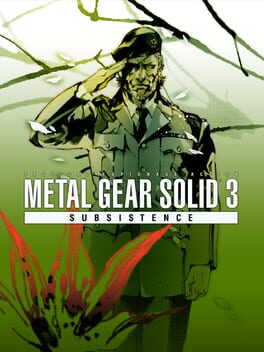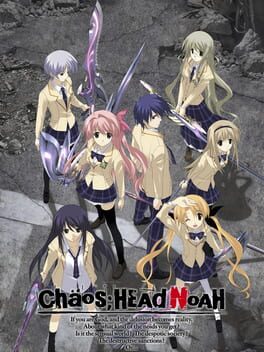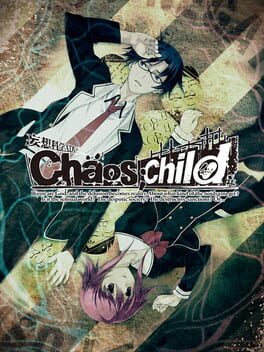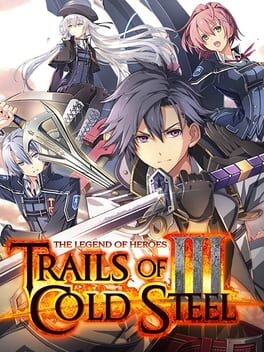489 reviews liked by DragoCrafterr
IN THE MIDST OF "IT'S SO OVER" I FOUND THERE WAS, WITHIN ME, AN INVINCIBLE "WE'RE SO BACK"
From its genesis it seems Dawntrail was destined to be divisive: the specificity (and complexity) of its subject matter and the unorthodox manner in which it chooses to elucidate upon its theses harkens back to Squaresoft's halcyon days of being able to pump out idiosyncratic, personal titles that didn't necessarily aim to appeal to everybody but knew its audience and knew how to convey its ideas to that specific audience.
The jaded hater in me wants to chalk up the largely-lukewarm reception to my perception of the average Final Fantasy XIV fan as a braindead child who can't stomach any philosophical or ideological statements more complex than Endwalker's vapid (if not stylishly-executed) hopepunk, but in truth it's really more a matter of taste: some will enjoy that Dawntrail has a nearly single-minded focus on worldbuilding, establishing history and context within the world of Etheirys, and reflective self-critique on Final Fantasy XIV's previous approach to its political statements and writing quirks (clearly aimed at an audience of people who have made Final Fantasy XIV a part of their lives in some active capacity for years on end). Some prefer it when Final Fantasy XIV is more of a series of self-contained adventures that begin and end with the player's presence in the world, and in that (entirely fair) case... well, it's just not for them, which I think is fair and worthy of respect.
For me, though? This is everything I've wanted out of Final Fantasy XIV's story and ethos since the main Shadowbringers storyline, both in the actual content of the story itself and in the ethos conveyed through the script and its structure. Dawntrail, to me, represents a return to form after a multi-year detour through Endwalker and (especially) its patch content, building on and expanding on the messages and ideas present in Shadowbringers while also revisiting the topics touched on in Stormblood (and in so doing rectifying the... less than desirable execution of its very poignant statements).
I've always held a great deal of frustration that Endwalker portrays hope as the be-all end-all answer to all conundrums, in spite of the fact that the majority of the world of Final Fantasy XIV as we know it is a neoliberal hellhole where despair is a symptom of a patchwork of corrupt capitalistic and colonialist power structures and not the product of a holistic lack of hope - Shadowbringers had to create an entirely separate dimension from the Source just to introduce the idea of a better society being possible, and it seems Dawntrail has done much of the same here with the introduction of Tural as a society that has thrived as a united peoples since long before the events of Final Fantasy XIV proper had ever even started to begin, likely benefitting from Tural's relative isolation from the rest of the Source considering the rampant corruption, infighting and imperialist threats plaguing Eorzea, Ilsabard and Othard. Tural isn't perfect - no society really is - but whenever problems come up and its people are shown to suffer, Wuk Lamat (the prospective heiress to the throne of Tural) almost exclusively responds with thoughtful self-critique and dedication to systemic change for the benefit of all. Wuk Lamat, like her father before her, is no pushover - she will fight, kill and stand her ground when necessary - but above all else she is motivated by the same culture of understanding, acceptance and mutual care that defines most of Tural at large.
Of course, not all who populate Tural and its lands are defined entirely by benevolence. Several threats stand in her way, many of which would see Tural reduced to the same standards that define the lands and cultures we've previously witnessed in Final Fantasy XIV's past... but there's one in particular I'd like to shed light on. I don't know how to go about phrasing this in a manner that's particularly eloquent or delicate, so I'll be as blunt as possible: Dawntrail, in large part, is about the undeniable truth that colonialism, imperialism and capitalism are built upon the corpses of indigenous peoples and the eradication of their cultures, histories and identities, and that the United States, Canada and much of Europe's foundational roots in colonialism stand only to erect a vapid culture of consumerism and mass exploitation. None better embody this truth than the kingdom of Alexandria, introduced out of seemingly nowhere in the final third of the storyline after having laid claim to a the majority of the Yyasulani region in northern Tural. Yyasulani (along with preceding region Shaaloani) is based off an amalgamation of present-day United States territories that once constituted a large part of Mexico prior to the Mexican-American war, populated in large part by individuals with names of Native American origin or influence - and the sudden invasion of a jingoist military power being introduced to this region in particular should say all that needs to be said about what Alexandria represents, but Dawntrail isn't satisfied with simple gestures at implied truths. Instead what follows is a sequence of storytelling that left me profoundly disturbed in a manner that Final Fantasy XIV never has, genuine discomfort and distress plaguing every passing second within the confines of Alexandria's conquered territory.
During the cutscene showcasing the initial Alexandrian invasion of Tuliyollal, the robotic soldiers laying waste to the capital city and its people are seen murdering a Turali citizen and then harvesting their soul from their body. Later, we learn that these harvested souls are foundational to the everyday goings-on of Everkeep, the colossal tower that constitutes much of modern-day Alexandria: souls are used to grant the denizens of Everkeep another life upon their death, while also being used for empowerment in combat should the wielder deem it necessary to overcharge their own aether for an upper hand in combat. The lives of the native people of Tural are quite literally a commodity upon which Alexandria is built, their labor exploited in a reservation in all but name on the former Yyasulani as the cultures "coexist" in a state of permanent assimilation. Perhaps worst of all is that this culture is not defined by any grand altruism or achievements one could argue are worthy of sacrifice: life in Everkeep is defined largely by vapid consumerism and homogenity, the majority of the sights Wuk Lamat and her entourage are treated to mostly amounting to "you can pay money for services and goods rendered." Tuliyollal places the value of life in more literal values, in heritage, in lessons passed down from generation to generation, while Alexandria defines the value of life in the sense of monetary value, commerce, exploitation. Individuals are a statistic, a fuel to be fed head-first into the great machine.
Of course, culture is culture - just because a people and culture is born and honed within the imperial core does not render them insignificant or worthy of eradication - but with Everkeep's dead forgotten and excised from memory upon their passing, there is no tradition to upkeep, no history to pass down, no growth in this self-perpetuating status quo of stagnation and destruction bereft of meaning. Even Sphene, the ostensibly-benevolent Queen of Alexandria says as much herself: in spite of her affront of goodwill and hopes for coexistence between Tuliyollal and Alexandria, she is soon as candid as can be about her stated purpose being the eradication of the peoples of Tural so that her own may live. There is no meaning, there is no growth, and there is no profundity in the solemn vow Sphene takes to destroy all but her own for the perceived good of her people - there is simply prerogative and action, defined by a consumption that will eradicate, consume, and exhaust all other imaginable life before it eventually and inevitably autocannibalizes and fades into nothingness. Wuk Lamat, all-loving as she is, struggles to reason with and appeal to Sphene's humanity, only to find that there is no humanity present to begin with - Sphene is little more than an algorithm programmed and manufactured to pragmatically ensure Alexandria's continued existence. The beating heart of the imperial core cannot be reasoned with, for it is little more than a machine that exists to shed blood without purpose or end.
I don't need to tell you that Sphene is eventually overthrown and peace is restored to Tural with Wuk Lamat standing proud as a worthy leader alongside her brother Koana - this is Final Fantasy after all, and Final Fantasy is about the inevitable triumph of good over evil - but let's talk about that a little bit, because Dawntrail's self-awareness and willingness to critique not only Final Fantasy XIV but Final Fantasy as a whole is maybe the thing that makes it stand out as a cut above over anything else in the entire game, maybe even Shadowbringers (my personal favorite expansion and, in my opinion, the objective peak of the game's storytelling) in a lot of respects.
From the outset Dawntrail is perhaps a little too on the nose with its lucidity of Final Fantasy XIV's previous flaws and faults in its writing - one of the first characters you interact with is a Mamool Ja man who plays the role of a player-worshipping Turali simpleton, only to immediately cut the crap and speak in a more frank and eloquent manner as he expresses his disdain for falling into stereotype for the benefit of Eorzeans - but come the prominence of Alexandria Dawntrail's dedication to rigorous self-critique is honed into something far more cogent and precise than its previous habit of looking into the camera and declaring "hey, we learned from Stormblood!". In the midst of Sphene giving a guided tour of Alexandria to the party, the group encounters a man who has fallen into fear and despair over his inability to purchase a fresh soul (and thus the guarantee that his life will not be ended prematurely by an untimely accident). The barrier of entry in this particular instance is the fact that he has lost his job at the Arcadion battle arena after its closure (which occurred due to Alexandria's need to focus its resources and able bodies on its war effort), and after voicing his concerns to Sphene, she proceeds to give a speech about holding onto hope in the face of despair. It's something straight out of Endwalker, replete with the fact that the hope the man should ostensibly hold onto is about his hope to... find a new job and continue his bland, shallow existence within a society of settlers.
I'd find it laughable and worthy of comparison to Endwalker's own habit of resorting to platitudes instead of meaningful societal change if not for the fact that the disparity between these two appears to be wholly deliberate, shedding a light on the reality that Eorzea, Othard and much of Ilsabard are not regions in which hope is really anything worth clinging to by juxtaposing it against a society that has once again been very loudly and loudly portrayed as the product of mass slaughter of indigenous people and the destruction of their culture. Dawntrail doesn't seem content to critique Endwalker or Final Fantasy XIV itself alone, however - if you're familiar with Final Fantasy in any capacity you likely know that Alexandria is, in large part, a callback to Final Fantasy IX, one of the most beloved and widely-cherished entries in the entirety of the series. Two particular traits about Final Fantasy IX stand out as crucial when regarding the decision to frame the latter quarter of Dawntrail around it: firstly that Final Fantasy IX is a self-congratulatory love letter to the earlier entries in the series with series creator Hironobu Sakaguchi (also the man behind IX) at the helm, and... well, Final Fantasy IX isn't very good. While it ultimately sticks the landing and manages to pull off the bevy of heartwarming capital-m Moments that Final Fantasy is known for, it comes across to me as particularly unthoughtful, shallow and vapid in comparison to the contemporaries it was made specifically to contrast (such as Final Fantasy VII, VIII, and X). Forgive me for stating my opinion as if it were fact here, but I think it's relevant and significant to iterate it for the sake of the conversation because I think Dawntrail agrees with me.
Like any good deconstruction, Dawntrail still holds a degree of fond affinity towards Final Fantasy IX - some of its callbacks are meant for scrutiny just as much as they are for fanservice, such as the callback to the introductory play scene and swordfight minigame at the beginning of Final Fantasy IX's story - but it also appears to want to put the "don't think too hard about it" flaws in its story to the test. In Final Fantasy IX, Garnet - the princess of the original Alexandria - stands in stark contrast to her predecessor Queen Brahne and her vicious military advisor Kuja as the fabled Good Queen that stands in contrast to the Bad Queen, whose legacy will be defined by fairness and compassion instead of the warmongering brutality that Brahne's reign was built upon. Zoraal Ja - one of Wuk Lamat's siblings and a fellow prospective heir to the Dawn Throne - takes Queen Brahne's place as the Bad Ruler in Dawntrail's retelling of its source material, defined by his desire to invade and overtake Tural as an Alexandrian territory in order to reclaim his pride and perceived right to rule as he pleases. Sphene, then, fulfills the role of the Good Queen, fair and compassionate and loved by all of her people... but there's no real way to be a Good Queen to a nation defined by and built upon imperialist mass murder, is there? No, there isn't - and Dawntrail knows this, revealing later on that Sphene herself was the mastermind behind the invasion of Tuliyollal and the harvesting of its people's souls. As genuine and true as Sphene's love for her people and kingdom may be, that love does not outweigh the cruelty and reckless abandon with which she regards all those who stand against Alexandria's aspirations simply by existing. Even Otis - the stand-in for Steiner, Final Fantasy IX's loyal knight who deems his unconditional fealty a worthy purpose in life if it is dedicated to a Good Queen - dedicates his loyalty to Sphene as a Good Queen only to die in the line of duty and promptly be forgotten for it, left behind as one corpse of many in the ruins of Everkeep once Alexandria begins to tear itself apart.
While Tuliyollal was united by communication, understanding and acceptance, and its prosperity seems as if it will be eternal. Alexandria was brought to the Source with conquest, exploitation, and unnecessary sacrifice, and as such it will inevitably destroy itself in the path of its own ambition. Gulool Ja Ja's love for his people and his home was genuine, whereas the love behind Sphene's calculating mien is conditional - masking a willingness to do whatever it takes to achieve an arbitrary, non-negotiable goal. That's what a Good Queen does, after all.
Towards the end of the story it's revealed Sphene's ultimate goal is to harvest souls specifically to ensure the longevity of replicated simulations of individuals who have died and been recreated in Living Memory, a faithful replica of various different recreational centers of Alexandria's past where the dead may be born anew and live forever in an afterlife defined by... the same empty consumerism and repetetive leisure that plagues Everkeep. Putting aside the sacrifice of Turali lives for the sake of a meaningless status quo, let us acknowledge the unconditional tragedy of death and the transience of our lives on Earth. I think most of us would love to live as long as we'd like to, and make it so that the ones we cherished but ultimately lost never died in the first place... but culture, as the first three-fourths of Dawntrail establish, is synonymous with history and the people who lived through it. The lessons they learned, the sentiments they shared, the traditions they practiced, all are entrusted to those who stand today to inherit, live with, build upon, and then pass down to the next generation so that the cycle may continue anew as culture, heritage and identity grows and flourishes. The best way to build a better future is to make a better present, after all, and to leave the world a little bit more pleasant than you found it for the people who will come after you.
Alexandria, both through Everkeep and Living Memory, obsesses over the stasis of a perfect imagined yesterday, a world where culture may never grow and people may never die... as pleasant as the idea may seem, ultimately living for little more than indulgence bereft of contemplation and understanding leads one to a hollow, unfulfilled existence. Final Fantasy itself is a series defined by culture, heritage, history and growth - it never does the same thing twice, yet it continuously builds on ideas, concepts and story beats from previous iterations to create a series that is ever-changing, ever-growing, ever-impacted by the people who touch it and make their impact on the stories they tell themselves, as well as the stories they tell in their wake... but Final Fantasy IX stands out from the crowd in mostly being concerned with the past, for a "golden era" that preceded the divergence from Sakaguchi's directoral habits defined by the three-man posse of Yoshinori Kitase, Tetsuya Nomura and Kazushige Nojima that defined Final Fantasy from its seventh entry onward. Like the Alexandria that pays homage to it, Final Fantasy IX is a masturbatory act of revelry of itself and its own past that cherishes so much but ultimately doesn't really grow or build in any significant manner at all... and honestly, that's fine. There's nothing inherently wrong with that, just like there's nothing inherently wrong with the culture and peoples of Everkeep to continue existing (you can't just eradicate an entire civilization and their culture just because its foundations are unjust). But it's also important to keep looking forward, to trust people with your legacy, and to know that a better future is possible even if a better past isn't.
I've got problems with Dawntrail - God knows I love to nitpick, and God knows I especially love to nitpick about Final Fantasy XIV - but honestly, none of that really matters to me that much. There's so much more about Dawntrail to pick apart and unpack that I haven't touched on here (such as the excellent portrayal of life as a diaspora in a European society with Erenville, who has been retconned in Dawntrail into being one of the game's best characters, or how I went from ironically gassing up Bakool Ja Ja to screaming in joy every time he was on-screen), to say nothing of the fact that in terms of content and actual minute-to-minute gameplay this is by far the best that Final Fantasy XIV has ever been. It's just great. I had a great time playing it, I've had a great time thinking about it and digesting what it has to say, and I had a great time writing this.
I'm just... really happy with Dawntrail. Perhaps above all else I'm genuinely happy that I wholeheartedly enjoy something that's always meant the world to me again. Final Fantasy XIV is back, y'all. I can't believe it.
And I can't wait to see what awaits us and Tural alike in the wake of this new dawn.
From its genesis it seems Dawntrail was destined to be divisive: the specificity (and complexity) of its subject matter and the unorthodox manner in which it chooses to elucidate upon its theses harkens back to Squaresoft's halcyon days of being able to pump out idiosyncratic, personal titles that didn't necessarily aim to appeal to everybody but knew its audience and knew how to convey its ideas to that specific audience.
The jaded hater in me wants to chalk up the largely-lukewarm reception to my perception of the average Final Fantasy XIV fan as a braindead child who can't stomach any philosophical or ideological statements more complex than Endwalker's vapid (if not stylishly-executed) hopepunk, but in truth it's really more a matter of taste: some will enjoy that Dawntrail has a nearly single-minded focus on worldbuilding, establishing history and context within the world of Etheirys, and reflective self-critique on Final Fantasy XIV's previous approach to its political statements and writing quirks (clearly aimed at an audience of people who have made Final Fantasy XIV a part of their lives in some active capacity for years on end). Some prefer it when Final Fantasy XIV is more of a series of self-contained adventures that begin and end with the player's presence in the world, and in that (entirely fair) case... well, it's just not for them, which I think is fair and worthy of respect.
For me, though? This is everything I've wanted out of Final Fantasy XIV's story and ethos since the main Shadowbringers storyline, both in the actual content of the story itself and in the ethos conveyed through the script and its structure. Dawntrail, to me, represents a return to form after a multi-year detour through Endwalker and (especially) its patch content, building on and expanding on the messages and ideas present in Shadowbringers while also revisiting the topics touched on in Stormblood (and in so doing rectifying the... less than desirable execution of its very poignant statements).
I've always held a great deal of frustration that Endwalker portrays hope as the be-all end-all answer to all conundrums, in spite of the fact that the majority of the world of Final Fantasy XIV as we know it is a neoliberal hellhole where despair is a symptom of a patchwork of corrupt capitalistic and colonialist power structures and not the product of a holistic lack of hope - Shadowbringers had to create an entirely separate dimension from the Source just to introduce the idea of a better society being possible, and it seems Dawntrail has done much of the same here with the introduction of Tural as a society that has thrived as a united peoples since long before the events of Final Fantasy XIV proper had ever even started to begin, likely benefitting from Tural's relative isolation from the rest of the Source considering the rampant corruption, infighting and imperialist threats plaguing Eorzea, Ilsabard and Othard. Tural isn't perfect - no society really is - but whenever problems come up and its people are shown to suffer, Wuk Lamat (the prospective heiress to the throne of Tural) almost exclusively responds with thoughtful self-critique and dedication to systemic change for the benefit of all. Wuk Lamat, like her father before her, is no pushover - she will fight, kill and stand her ground when necessary - but above all else she is motivated by the same culture of understanding, acceptance and mutual care that defines most of Tural at large.
Of course, not all who populate Tural and its lands are defined entirely by benevolence. Several threats stand in her way, many of which would see Tural reduced to the same standards that define the lands and cultures we've previously witnessed in Final Fantasy XIV's past... but there's one in particular I'd like to shed light on. I don't know how to go about phrasing this in a manner that's particularly eloquent or delicate, so I'll be as blunt as possible: Dawntrail, in large part, is about the undeniable truth that colonialism, imperialism and capitalism are built upon the corpses of indigenous peoples and the eradication of their cultures, histories and identities, and that the United States, Canada and much of Europe's foundational roots in colonialism stand only to erect a vapid culture of consumerism and mass exploitation. None better embody this truth than the kingdom of Alexandria, introduced out of seemingly nowhere in the final third of the storyline after having laid claim to a the majority of the Yyasulani region in northern Tural. Yyasulani (along with preceding region Shaaloani) is based off an amalgamation of present-day United States territories that once constituted a large part of Mexico prior to the Mexican-American war, populated in large part by individuals with names of Native American origin or influence - and the sudden invasion of a jingoist military power being introduced to this region in particular should say all that needs to be said about what Alexandria represents, but Dawntrail isn't satisfied with simple gestures at implied truths. Instead what follows is a sequence of storytelling that left me profoundly disturbed in a manner that Final Fantasy XIV never has, genuine discomfort and distress plaguing every passing second within the confines of Alexandria's conquered territory.
During the cutscene showcasing the initial Alexandrian invasion of Tuliyollal, the robotic soldiers laying waste to the capital city and its people are seen murdering a Turali citizen and then harvesting their soul from their body. Later, we learn that these harvested souls are foundational to the everyday goings-on of Everkeep, the colossal tower that constitutes much of modern-day Alexandria: souls are used to grant the denizens of Everkeep another life upon their death, while also being used for empowerment in combat should the wielder deem it necessary to overcharge their own aether for an upper hand in combat. The lives of the native people of Tural are quite literally a commodity upon which Alexandria is built, their labor exploited in a reservation in all but name on the former Yyasulani as the cultures "coexist" in a state of permanent assimilation. Perhaps worst of all is that this culture is not defined by any grand altruism or achievements one could argue are worthy of sacrifice: life in Everkeep is defined largely by vapid consumerism and homogenity, the majority of the sights Wuk Lamat and her entourage are treated to mostly amounting to "you can pay money for services and goods rendered." Tuliyollal places the value of life in more literal values, in heritage, in lessons passed down from generation to generation, while Alexandria defines the value of life in the sense of monetary value, commerce, exploitation. Individuals are a statistic, a fuel to be fed head-first into the great machine.
Of course, culture is culture - just because a people and culture is born and honed within the imperial core does not render them insignificant or worthy of eradication - but with Everkeep's dead forgotten and excised from memory upon their passing, there is no tradition to upkeep, no history to pass down, no growth in this self-perpetuating status quo of stagnation and destruction bereft of meaning. Even Sphene, the ostensibly-benevolent Queen of Alexandria says as much herself: in spite of her affront of goodwill and hopes for coexistence between Tuliyollal and Alexandria, she is soon as candid as can be about her stated purpose being the eradication of the peoples of Tural so that her own may live. There is no meaning, there is no growth, and there is no profundity in the solemn vow Sphene takes to destroy all but her own for the perceived good of her people - there is simply prerogative and action, defined by a consumption that will eradicate, consume, and exhaust all other imaginable life before it eventually and inevitably autocannibalizes and fades into nothingness. Wuk Lamat, all-loving as she is, struggles to reason with and appeal to Sphene's humanity, only to find that there is no humanity present to begin with - Sphene is little more than an algorithm programmed and manufactured to pragmatically ensure Alexandria's continued existence. The beating heart of the imperial core cannot be reasoned with, for it is little more than a machine that exists to shed blood without purpose or end.
I don't need to tell you that Sphene is eventually overthrown and peace is restored to Tural with Wuk Lamat standing proud as a worthy leader alongside her brother Koana - this is Final Fantasy after all, and Final Fantasy is about the inevitable triumph of good over evil - but let's talk about that a little bit, because Dawntrail's self-awareness and willingness to critique not only Final Fantasy XIV but Final Fantasy as a whole is maybe the thing that makes it stand out as a cut above over anything else in the entire game, maybe even Shadowbringers (my personal favorite expansion and, in my opinion, the objective peak of the game's storytelling) in a lot of respects.
From the outset Dawntrail is perhaps a little too on the nose with its lucidity of Final Fantasy XIV's previous flaws and faults in its writing - one of the first characters you interact with is a Mamool Ja man who plays the role of a player-worshipping Turali simpleton, only to immediately cut the crap and speak in a more frank and eloquent manner as he expresses his disdain for falling into stereotype for the benefit of Eorzeans - but come the prominence of Alexandria Dawntrail's dedication to rigorous self-critique is honed into something far more cogent and precise than its previous habit of looking into the camera and declaring "hey, we learned from Stormblood!". In the midst of Sphene giving a guided tour of Alexandria to the party, the group encounters a man who has fallen into fear and despair over his inability to purchase a fresh soul (and thus the guarantee that his life will not be ended prematurely by an untimely accident). The barrier of entry in this particular instance is the fact that he has lost his job at the Arcadion battle arena after its closure (which occurred due to Alexandria's need to focus its resources and able bodies on its war effort), and after voicing his concerns to Sphene, she proceeds to give a speech about holding onto hope in the face of despair. It's something straight out of Endwalker, replete with the fact that the hope the man should ostensibly hold onto is about his hope to... find a new job and continue his bland, shallow existence within a society of settlers.
I'd find it laughable and worthy of comparison to Endwalker's own habit of resorting to platitudes instead of meaningful societal change if not for the fact that the disparity between these two appears to be wholly deliberate, shedding a light on the reality that Eorzea, Othard and much of Ilsabard are not regions in which hope is really anything worth clinging to by juxtaposing it against a society that has once again been very loudly and loudly portrayed as the product of mass slaughter of indigenous people and the destruction of their culture. Dawntrail doesn't seem content to critique Endwalker or Final Fantasy XIV itself alone, however - if you're familiar with Final Fantasy in any capacity you likely know that Alexandria is, in large part, a callback to Final Fantasy IX, one of the most beloved and widely-cherished entries in the entirety of the series. Two particular traits about Final Fantasy IX stand out as crucial when regarding the decision to frame the latter quarter of Dawntrail around it: firstly that Final Fantasy IX is a self-congratulatory love letter to the earlier entries in the series with series creator Hironobu Sakaguchi (also the man behind IX) at the helm, and... well, Final Fantasy IX isn't very good. While it ultimately sticks the landing and manages to pull off the bevy of heartwarming capital-m Moments that Final Fantasy is known for, it comes across to me as particularly unthoughtful, shallow and vapid in comparison to the contemporaries it was made specifically to contrast (such as Final Fantasy VII, VIII, and X). Forgive me for stating my opinion as if it were fact here, but I think it's relevant and significant to iterate it for the sake of the conversation because I think Dawntrail agrees with me.
Like any good deconstruction, Dawntrail still holds a degree of fond affinity towards Final Fantasy IX - some of its callbacks are meant for scrutiny just as much as they are for fanservice, such as the callback to the introductory play scene and swordfight minigame at the beginning of Final Fantasy IX's story - but it also appears to want to put the "don't think too hard about it" flaws in its story to the test. In Final Fantasy IX, Garnet - the princess of the original Alexandria - stands in stark contrast to her predecessor Queen Brahne and her vicious military advisor Kuja as the fabled Good Queen that stands in contrast to the Bad Queen, whose legacy will be defined by fairness and compassion instead of the warmongering brutality that Brahne's reign was built upon. Zoraal Ja - one of Wuk Lamat's siblings and a fellow prospective heir to the Dawn Throne - takes Queen Brahne's place as the Bad Ruler in Dawntrail's retelling of its source material, defined by his desire to invade and overtake Tural as an Alexandrian territory in order to reclaim his pride and perceived right to rule as he pleases. Sphene, then, fulfills the role of the Good Queen, fair and compassionate and loved by all of her people... but there's no real way to be a Good Queen to a nation defined by and built upon imperialist mass murder, is there? No, there isn't - and Dawntrail knows this, revealing later on that Sphene herself was the mastermind behind the invasion of Tuliyollal and the harvesting of its people's souls. As genuine and true as Sphene's love for her people and kingdom may be, that love does not outweigh the cruelty and reckless abandon with which she regards all those who stand against Alexandria's aspirations simply by existing. Even Otis - the stand-in for Steiner, Final Fantasy IX's loyal knight who deems his unconditional fealty a worthy purpose in life if it is dedicated to a Good Queen - dedicates his loyalty to Sphene as a Good Queen only to die in the line of duty and promptly be forgotten for it, left behind as one corpse of many in the ruins of Everkeep once Alexandria begins to tear itself apart.
While Tuliyollal was united by communication, understanding and acceptance, and its prosperity seems as if it will be eternal. Alexandria was brought to the Source with conquest, exploitation, and unnecessary sacrifice, and as such it will inevitably destroy itself in the path of its own ambition. Gulool Ja Ja's love for his people and his home was genuine, whereas the love behind Sphene's calculating mien is conditional - masking a willingness to do whatever it takes to achieve an arbitrary, non-negotiable goal. That's what a Good Queen does, after all.
Towards the end of the story it's revealed Sphene's ultimate goal is to harvest souls specifically to ensure the longevity of replicated simulations of individuals who have died and been recreated in Living Memory, a faithful replica of various different recreational centers of Alexandria's past where the dead may be born anew and live forever in an afterlife defined by... the same empty consumerism and repetetive leisure that plagues Everkeep. Putting aside the sacrifice of Turali lives for the sake of a meaningless status quo, let us acknowledge the unconditional tragedy of death and the transience of our lives on Earth. I think most of us would love to live as long as we'd like to, and make it so that the ones we cherished but ultimately lost never died in the first place... but culture, as the first three-fourths of Dawntrail establish, is synonymous with history and the people who lived through it. The lessons they learned, the sentiments they shared, the traditions they practiced, all are entrusted to those who stand today to inherit, live with, build upon, and then pass down to the next generation so that the cycle may continue anew as culture, heritage and identity grows and flourishes. The best way to build a better future is to make a better present, after all, and to leave the world a little bit more pleasant than you found it for the people who will come after you.
Alexandria, both through Everkeep and Living Memory, obsesses over the stasis of a perfect imagined yesterday, a world where culture may never grow and people may never die... as pleasant as the idea may seem, ultimately living for little more than indulgence bereft of contemplation and understanding leads one to a hollow, unfulfilled existence. Final Fantasy itself is a series defined by culture, heritage, history and growth - it never does the same thing twice, yet it continuously builds on ideas, concepts and story beats from previous iterations to create a series that is ever-changing, ever-growing, ever-impacted by the people who touch it and make their impact on the stories they tell themselves, as well as the stories they tell in their wake... but Final Fantasy IX stands out from the crowd in mostly being concerned with the past, for a "golden era" that preceded the divergence from Sakaguchi's directoral habits defined by the three-man posse of Yoshinori Kitase, Tetsuya Nomura and Kazushige Nojima that defined Final Fantasy from its seventh entry onward. Like the Alexandria that pays homage to it, Final Fantasy IX is a masturbatory act of revelry of itself and its own past that cherishes so much but ultimately doesn't really grow or build in any significant manner at all... and honestly, that's fine. There's nothing inherently wrong with that, just like there's nothing inherently wrong with the culture and peoples of Everkeep to continue existing (you can't just eradicate an entire civilization and their culture just because its foundations are unjust). But it's also important to keep looking forward, to trust people with your legacy, and to know that a better future is possible even if a better past isn't.
I've got problems with Dawntrail - God knows I love to nitpick, and God knows I especially love to nitpick about Final Fantasy XIV - but honestly, none of that really matters to me that much. There's so much more about Dawntrail to pick apart and unpack that I haven't touched on here (such as the excellent portrayal of life as a diaspora in a European society with Erenville, who has been retconned in Dawntrail into being one of the game's best characters, or how I went from ironically gassing up Bakool Ja Ja to screaming in joy every time he was on-screen), to say nothing of the fact that in terms of content and actual minute-to-minute gameplay this is by far the best that Final Fantasy XIV has ever been. It's just great. I had a great time playing it, I've had a great time thinking about it and digesting what it has to say, and I had a great time writing this.
I'm just... really happy with Dawntrail. Perhaps above all else I'm genuinely happy that I wholeheartedly enjoy something that's always meant the world to me again. Final Fantasy XIV is back, y'all. I can't believe it.
And I can't wait to see what awaits us and Tural alike in the wake of this new dawn.
Kick-Flight
2020
Kick-Flight
2020
Psychic Force 2012
1998
Well, this was a quite a pleasant surprise. This basically answers the question of "what if Dragon Ball characters had far less muscle power and had to mostly fight with elaborate energy blasts?" The answer turns out to be pretty solid and unique fighting game.
Okay, saying they're just energy blasts is slightly underselling it. You'll be fighting in a cubical arena far above ground, being able to fly around in both X and Y axis. Your basic moves are a light attack, strong attack, charging your psychic meter, guard/block, and dash. At long range, each attack button will execute a ranged attack, but at close range you'll do melee instead. You can also grab them. Most attacks will drain your psychic meter, which can be recharged but will leave an opening for your enemy. Your psychic meter also gets bigger as your health gets lower, which means you can be more aggressive, although with greater risk. You can bounce enemies towards the level's borders and "freeze" them for a very short period, which seems to be the main way to unleash a longer string of attacks.
There seems to be a bunch more universal advanced moves but I'll be honest, I'm a very casual fighting game enjoyer, I read the manual and I didn't understand the advanced stuff lol. Either way, I had quite a blast with the knowledge I had gained so far, and was able to go through the story modes for all 10 characters with relative ease at the "default" difficulty level (apparently it's Easy? There's 8 levels). Obviously it depends on your chosen character's play style, but the fundamentals of keeping your distance, punishing missed attacks and minding your psychic meter seems to be the most basic skills to have. It results in a slower paced, tactical fighting gameplay that I really enjoy.
As I hinted before, there's 10 available characters at the start. In terms of gameplay, I particularly enjoy Setsuna (great variety of hard hitting attacks, especially the one that unleashes arrows in a wide spread), Carlo (I really like the Aqua Javelin move, which can bounce your enemy towards you for an intimate ass-kicking), and Might (seems like the most noob-friendly character). Maybe the only one that I actively hate using is Patty, her trap-placing (?) moves didn't click with me at all.
I find the Story Mode to be quite satisfying. It's the traditional individual-story-arc-each-character structure, and I liked the overall setup of the game's world. It's very much in the vein of a 90s anime: two warring factions, one of them far shadier than the other. It's a story where nobody seems to have a fully happy ending, and it always leaves a trail of dead bodies. I particularly enjoy Emilio and Wendy's story arc, which features my two favorite character endings so far. I also enjoyed Setsuna's drunk-with-power story quite a bit, mostly because of how unhinged he is.
Other than that, there's pretty bangin' soundtrack to look forward to. I also love the 90s anime visual style, the engine they used seems to be perfect for the job, and the character designs and portraits are beautiful. I can't exactly say the same for the level backgrounds, they're just okay and could have been better.
As it stands, PF2012 is a cool-as-heck fighting game. It might not be the most competitive fighting game, but nobody can claim that it's not unique. I look forward to unlocking the secret characters hopefully pretty soon.
Okay, saying they're just energy blasts is slightly underselling it. You'll be fighting in a cubical arena far above ground, being able to fly around in both X and Y axis. Your basic moves are a light attack, strong attack, charging your psychic meter, guard/block, and dash. At long range, each attack button will execute a ranged attack, but at close range you'll do melee instead. You can also grab them. Most attacks will drain your psychic meter, which can be recharged but will leave an opening for your enemy. Your psychic meter also gets bigger as your health gets lower, which means you can be more aggressive, although with greater risk. You can bounce enemies towards the level's borders and "freeze" them for a very short period, which seems to be the main way to unleash a longer string of attacks.
There seems to be a bunch more universal advanced moves but I'll be honest, I'm a very casual fighting game enjoyer, I read the manual and I didn't understand the advanced stuff lol. Either way, I had quite a blast with the knowledge I had gained so far, and was able to go through the story modes for all 10 characters with relative ease at the "default" difficulty level (apparently it's Easy? There's 8 levels). Obviously it depends on your chosen character's play style, but the fundamentals of keeping your distance, punishing missed attacks and minding your psychic meter seems to be the most basic skills to have. It results in a slower paced, tactical fighting gameplay that I really enjoy.
As I hinted before, there's 10 available characters at the start. In terms of gameplay, I particularly enjoy Setsuna (great variety of hard hitting attacks, especially the one that unleashes arrows in a wide spread), Carlo (I really like the Aqua Javelin move, which can bounce your enemy towards you for an intimate ass-kicking), and Might (seems like the most noob-friendly character). Maybe the only one that I actively hate using is Patty, her trap-placing (?) moves didn't click with me at all.
I find the Story Mode to be quite satisfying. It's the traditional individual-story-arc-each-character structure, and I liked the overall setup of the game's world. It's very much in the vein of a 90s anime: two warring factions, one of them far shadier than the other. It's a story where nobody seems to have a fully happy ending, and it always leaves a trail of dead bodies. I particularly enjoy Emilio and Wendy's story arc, which features my two favorite character endings so far. I also enjoyed Setsuna's drunk-with-power story quite a bit, mostly because of how unhinged he is.
Other than that, there's pretty bangin' soundtrack to look forward to. I also love the 90s anime visual style, the engine they used seems to be perfect for the job, and the character designs and portraits are beautiful. I can't exactly say the same for the level backgrounds, they're just okay and could have been better.
As it stands, PF2012 is a cool-as-heck fighting game. It might not be the most competitive fighting game, but nobody can claim that it's not unique. I look forward to unlocking the secret characters hopefully pretty soon.
Among Us
2018
This game is just really mid over all I mean the story isn’t good like at all and it is the most boring thing ever I regret buying it. The only thing good about it is the online battle that’s where I got to battle my friend Mohamed me and him played this game only for this online battle because the story sucked and we had fun here and there so that brought my rating up. But it’s still really mid. So basically only get this game if you really like online battling.
Rabbit & Steel
2024
Final Fantasy XIV has gotten further and further from its RPG roots since its inception in 2010. With each passing patch, RPG systems were simplified; no longer do we have elemental resistances, cross-class abilities, let alone meaningful character builds. In place of those elements came increasingly complex bosses, intense dances requiring patience, spatial awareness, and memorization. It's more similar to the Punch-Out!! games, or a pattern-focused shooter like Shoot the Bullet or Impossible Spell Card, than an RPG. A timed puzzle for you to figure out - a test of your reflexes, if you will.
Rabbit & Steel takes that abstraction to its logical conclusion by stripping out all unnecessary MMORPG elements and becoming a 2D roguelike shooter. You still have a few GCD/oGCD abilities instead of simply a fire button, and these can be upgraded or changed at shops. This actually allows you to create different class builds as you progress the game, something you can't really do in FF14. Because of this progression system however, this game isn't particularly conducive to scoring like a typical 2D shooter. Instead, this is best played with a full 4-player party as a co-op game. While the game is perfectly playable and enjoyable single-player, multiplayer is where the both the roguelike and raiding mechanics shine, forcing you to account for your teammates' buffs and abilities as well as their positions on the field to avoid screwing them over with mechanics. Surprisingly for a PC game, local multiplayer is included allowing for couch co-op if you have a TV setup for your PC. Perhaps this hints at a future console port like for Maiden & Spell. Either way, co-op is a ton of fun even for those with no raiding or shmup experience.
Cues for all the various mechanics are easier to parse and less flashy than those in FF14. There are no obnoxiously-colored floors that make AoEs needlessly hard to see, there are visual accessibility options for the background, and the two-dimensional perspective allows you to see the entire pattern at once. What this means is that no matter how hard the game gets (it gets pretty tough), it's easy to sightread. Even on lower difficulties, mechanics fire off much faster and overlap much more often than in FF14, but there are no moments of confusion like there often are in that game's high-end raids. The design language is so consistent and clear that anyone can pick up and play this with their friends and have a good time.
Rabbit & Steel is FF14 raiding without the barriers of entry: no subscription fees, no several-hundred-hour-long story, no weekly time-gated gear progression, and no obtuse mechanics. And if that wasn't enough, the character designs are really cute and the soundtrack is one of the catchiest I've heard in a long while.
Rabbit & Steel takes that abstraction to its logical conclusion by stripping out all unnecessary MMORPG elements and becoming a 2D roguelike shooter. You still have a few GCD/oGCD abilities instead of simply a fire button, and these can be upgraded or changed at shops. This actually allows you to create different class builds as you progress the game, something you can't really do in FF14. Because of this progression system however, this game isn't particularly conducive to scoring like a typical 2D shooter. Instead, this is best played with a full 4-player party as a co-op game. While the game is perfectly playable and enjoyable single-player, multiplayer is where the both the roguelike and raiding mechanics shine, forcing you to account for your teammates' buffs and abilities as well as their positions on the field to avoid screwing them over with mechanics. Surprisingly for a PC game, local multiplayer is included allowing for couch co-op if you have a TV setup for your PC. Perhaps this hints at a future console port like for Maiden & Spell. Either way, co-op is a ton of fun even for those with no raiding or shmup experience.
Cues for all the various mechanics are easier to parse and less flashy than those in FF14. There are no obnoxiously-colored floors that make AoEs needlessly hard to see, there are visual accessibility options for the background, and the two-dimensional perspective allows you to see the entire pattern at once. What this means is that no matter how hard the game gets (it gets pretty tough), it's easy to sightread. Even on lower difficulties, mechanics fire off much faster and overlap much more often than in FF14, but there are no moments of confusion like there often are in that game's high-end raids. The design language is so consistent and clear that anyone can pick up and play this with their friends and have a good time.
Rabbit & Steel is FF14 raiding without the barriers of entry: no subscription fees, no several-hundred-hour-long story, no weekly time-gated gear progression, and no obtuse mechanics. And if that wasn't enough, the character designs are really cute and the soundtrack is one of the catchiest I've heard in a long while.
Pokémon Red Version
1996
KFC Fryer the level 3 Rattata who I put on my final team as a joke and sent into a solar beam from Venusaur in the champion battle before realizing I could have just used dig on my currently active Arbok and gotten the same results >>>>>>>>>>>>>>>>>>>>>>>>>>>>>>>>>>>>>>>>>>>>>>>>>>>>>>>>>>>>>>>> every party member in whatever your favorite RPG is
Fire Emblem: Code of the Burger King is a greater celebration of the series than Fire Emblem Engage.
I know this sounds really conceited and runs the risk of "Nintendo hire this man" rhetoric but let me explain. Regardless of your opinions on a title as polarizing as Engage, the inherent idea of focusing on the main lords as a group of friends happily getting along fundamentally can not represent Fire Emblem the idea. Every Fire Emblem game has at least one massive thorn that hinders people from liking it, be that frictional game design decisions, sloppy writing, the multitude of reactionary and/or otherwise disgusting aspects throughout the series, or in most cases, all three combined. To put this into perspective, the most likely candidate for the most universally beloved game in the series among those who've played it is the one with infamously slow paced gameplay and also a playable minstrel stereotype. As such, there's this inherent air of cynicism to Fire Emblem that makes it, be it through older fans wishing for the series' death already or newer fans jokingly referring to their preferred games in the series as dating sims. I don't care for a lot of tonally similar game franchises (i.e. Persona, Xenoblade, Trails) yet I am an avid enjoyer of Fire Emblem for how weird and frictional it can be at points as well as how your enjoyment of it effectively turns you into the RPG fan equivalent of a heel wrestler. It is impossible for official attempt at a Fire Emblem celebration to capture what makes the series appealing to a significant portion of its playerbase, as doing so would require Nintendo and Intelligent Systems to reveal the man behind the curtain and shatter the facade behind their advertised image of the series.
Enter Code of the Burger King, a Fire Emblem rom hack with the core appeal of being a meme hack with surprising levels of mechanical depth and effort in other avenues. The opening chapters of this hack follow the typical Fire Emblem set up of a royal or otherwise important figure (the latter in this case) fleeing their homeland due to some unexpected danger but with the twist that the main character BK, the Tellius games' popular antagonist, did this because of an annoying customer at his shitty fast food job, creating a juxtaposition between the fantastical and the mundane or otherwise cynical. Similar juxtapositions exist all throughout Code of the Burger King: This game's Jagen (i.e. strong prepromote that joins early and will almost certainly be of great importance to your performance in the first few chapters) is Fiona, a notoriously scuffed gameplay unit due to a possible coding error. Duo Geno Escapo, a rom hack widely disliked by the community for its low effort edgelord humor is portrayed as a mythical evil/Brothers Grimm style legend passed down through generations coming true. And one of the most important moments in the development of RPG storytelling, Final Fantasy IV's Cecil Harvey turning from bad knight to good knight (good night for you) and accepting his role as a prophesized hero through an act of mercy, is distorted to be about fulfilling the destiny of a fast food chain with food that doesn't even taste good.
In particular, there's a running gag that the hack's enemies are appearing out of nowhere as if they only exist to be fodder for video game missions with no minds of their own. The cause of these occurrences is a version of corporate mascot, Touhou meme, and apartheid supporter Ronald McDonald with the personality, nihilistic outlook, and banger boss theme of Final Fantasy VI's Kefka Palazzo. Upon defeating him in the final map, our protagonist admits he has a point about life having no intrinsic meaning but instead sees that revelation as a jumping off point to find your own meaning, a parody of the tendency of plenty of RPGs to act like they're deeper than they actually are for skimming the Wikipedia page for existentialism with little to add beyond that that is then followed up by BK's partner in yaoi assuming he's intoxicated from volcano smoke.
However, in a way, this existentialist philosophy of ascribing your own meaning onto the meaningless is what is necessary to be a Fire Emblem fan. Code of the Burger King isn't just a tribute to vanilla Fire Emblem through its decision to feature elements from across the series but also a tribute to the value that various fans have managed to get out of the series. Members of the playable cast include Hugh, a personal favorite of the hack's creator, Matthis, the loser cavalier propelled to a beloved character in small circles because of one man's actions, and Rebecca and Priscilla, a pair of characters that have literally never interacted with each other once in the actual game they came from but have been turned into a niche lesbian pairing due to a rom hacker's attempt at an FE7 rebalance and subsequent Twitter gaslighting campaign. For any fault I can find with Code of the Burger King's gameplay (Chapter 13 plays like ass and also I really do not like the decision to have relatively large deployment limits in a way that can sometimes mess with the pacing of turns and discourages me from engaging with permadeath due to the game's smaller sized cast) and for any joke that doesn't land, Code of the Burger King exceeds not just as one of the best examples of the fast paced player phase focused gameplay that's become the bread and butter of FE hacks but also as a genuine celebration of everything to happen in the series' three decades of existence, be it good or bad.
Move over Final Fantasy IX, Persona 3, and Nier, this is what a real 40 hour RPG that tells you life is worth living at the end looks like.
Last Minute Disclaimers:
1. At the risk of coming off as too preachy for a review of a Fire Emblem rom hack, I support the BDS targeted boycott against Burger King, McDonalds, and other brands involved in reinforcing a disgusting apartheid regime and urge you all to do the same. I personally read the game's use of these two brands is very much a joke at their expense but it is very awkward to talk about a hack with "Burger King" in the name given current events so I feel the need to specify this.
2. I have regular contact with the hack's creator through various avenues (one of which being my own public Discord server before I deleted it due to a long story involving someone joining just to post an Andrew Tate cock gif) and have beaten his ass in multiple Pokémon draft league matches so feel free to accuse me of nepotism.
I know this sounds really conceited and runs the risk of "Nintendo hire this man" rhetoric but let me explain. Regardless of your opinions on a title as polarizing as Engage, the inherent idea of focusing on the main lords as a group of friends happily getting along fundamentally can not represent Fire Emblem the idea. Every Fire Emblem game has at least one massive thorn that hinders people from liking it, be that frictional game design decisions, sloppy writing, the multitude of reactionary and/or otherwise disgusting aspects throughout the series, or in most cases, all three combined. To put this into perspective, the most likely candidate for the most universally beloved game in the series among those who've played it is the one with infamously slow paced gameplay and also a playable minstrel stereotype. As such, there's this inherent air of cynicism to Fire Emblem that makes it, be it through older fans wishing for the series' death already or newer fans jokingly referring to their preferred games in the series as dating sims. I don't care for a lot of tonally similar game franchises (i.e. Persona, Xenoblade, Trails) yet I am an avid enjoyer of Fire Emblem for how weird and frictional it can be at points as well as how your enjoyment of it effectively turns you into the RPG fan equivalent of a heel wrestler. It is impossible for official attempt at a Fire Emblem celebration to capture what makes the series appealing to a significant portion of its playerbase, as doing so would require Nintendo and Intelligent Systems to reveal the man behind the curtain and shatter the facade behind their advertised image of the series.
Enter Code of the Burger King, a Fire Emblem rom hack with the core appeal of being a meme hack with surprising levels of mechanical depth and effort in other avenues. The opening chapters of this hack follow the typical Fire Emblem set up of a royal or otherwise important figure (the latter in this case) fleeing their homeland due to some unexpected danger but with the twist that the main character BK, the Tellius games' popular antagonist, did this because of an annoying customer at his shitty fast food job, creating a juxtaposition between the fantastical and the mundane or otherwise cynical. Similar juxtapositions exist all throughout Code of the Burger King: This game's Jagen (i.e. strong prepromote that joins early and will almost certainly be of great importance to your performance in the first few chapters) is Fiona, a notoriously scuffed gameplay unit due to a possible coding error. Duo Geno Escapo, a rom hack widely disliked by the community for its low effort edgelord humor is portrayed as a mythical evil/Brothers Grimm style legend passed down through generations coming true. And one of the most important moments in the development of RPG storytelling, Final Fantasy IV's Cecil Harvey turning from bad knight to good knight (good night for you) and accepting his role as a prophesized hero through an act of mercy, is distorted to be about fulfilling the destiny of a fast food chain with food that doesn't even taste good.
In particular, there's a running gag that the hack's enemies are appearing out of nowhere as if they only exist to be fodder for video game missions with no minds of their own. The cause of these occurrences is a version of corporate mascot, Touhou meme, and apartheid supporter Ronald McDonald with the personality, nihilistic outlook, and banger boss theme of Final Fantasy VI's Kefka Palazzo. Upon defeating him in the final map, our protagonist admits he has a point about life having no intrinsic meaning but instead sees that revelation as a jumping off point to find your own meaning, a parody of the tendency of plenty of RPGs to act like they're deeper than they actually are for skimming the Wikipedia page for existentialism with little to add beyond that that is then followed up by BK's partner in yaoi assuming he's intoxicated from volcano smoke.
However, in a way, this existentialist philosophy of ascribing your own meaning onto the meaningless is what is necessary to be a Fire Emblem fan. Code of the Burger King isn't just a tribute to vanilla Fire Emblem through its decision to feature elements from across the series but also a tribute to the value that various fans have managed to get out of the series. Members of the playable cast include Hugh, a personal favorite of the hack's creator, Matthis, the loser cavalier propelled to a beloved character in small circles because of one man's actions, and Rebecca and Priscilla, a pair of characters that have literally never interacted with each other once in the actual game they came from but have been turned into a niche lesbian pairing due to a rom hacker's attempt at an FE7 rebalance and subsequent Twitter gaslighting campaign. For any fault I can find with Code of the Burger King's gameplay (Chapter 13 plays like ass and also I really do not like the decision to have relatively large deployment limits in a way that can sometimes mess with the pacing of turns and discourages me from engaging with permadeath due to the game's smaller sized cast) and for any joke that doesn't land, Code of the Burger King exceeds not just as one of the best examples of the fast paced player phase focused gameplay that's become the bread and butter of FE hacks but also as a genuine celebration of everything to happen in the series' three decades of existence, be it good or bad.
Move over Final Fantasy IX, Persona 3, and Nier, this is what a real 40 hour RPG that tells you life is worth living at the end looks like.
Last Minute Disclaimers:
1. At the risk of coming off as too preachy for a review of a Fire Emblem rom hack, I support the BDS targeted boycott against Burger King, McDonalds, and other brands involved in reinforcing a disgusting apartheid regime and urge you all to do the same. I personally read the game's use of these two brands is very much a joke at their expense but it is very awkward to talk about a hack with "Burger King" in the name given current events so I feel the need to specify this.
2. I have regular contact with the hack's creator through various avenues (one of which being my own public Discord server before I deleted it due to a long story involving someone joining just to post an Andrew Tate cock gif) and have beaten his ass in multiple Pokémon draft league matches so feel free to accuse me of nepotism.
